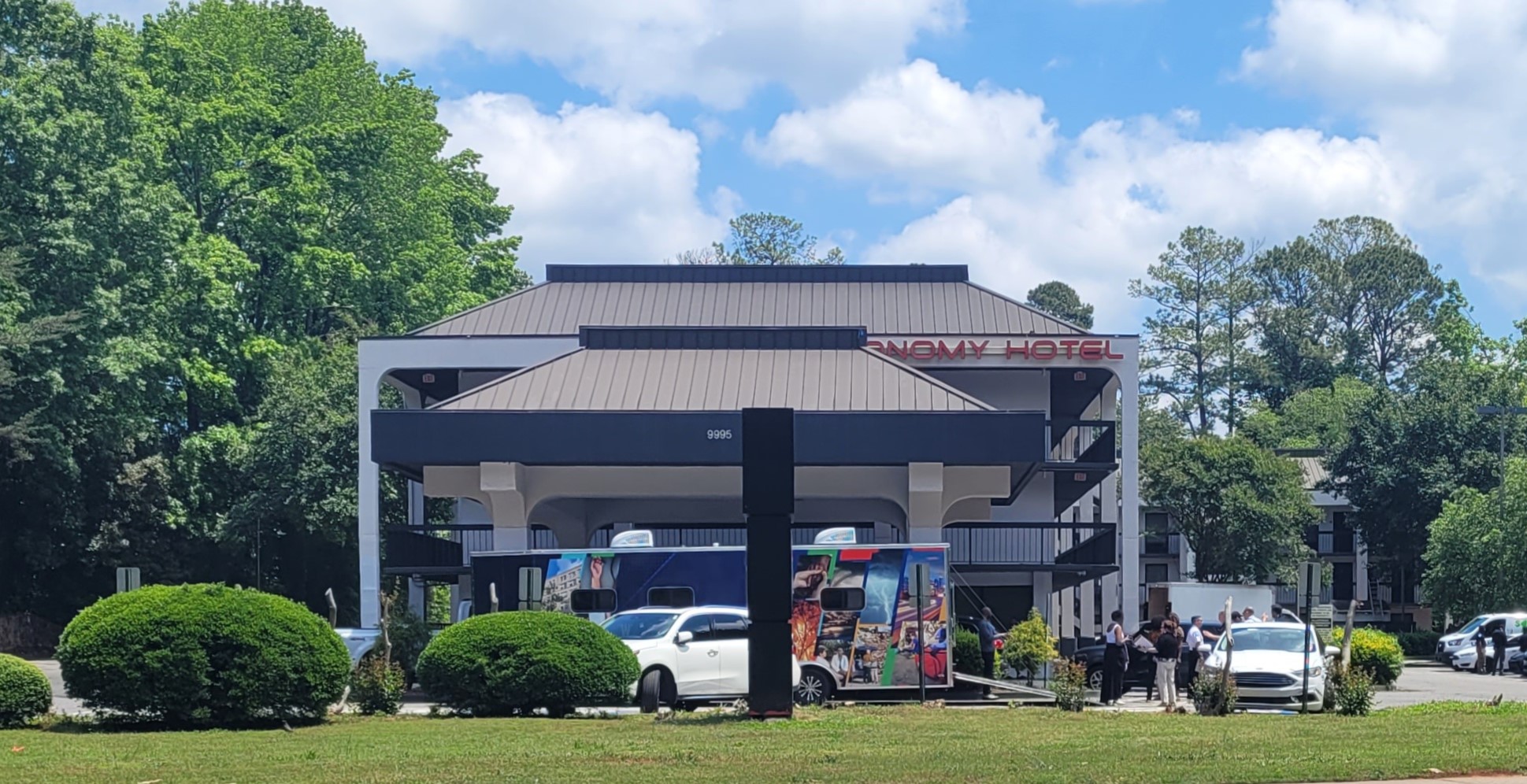
In May of 2025, the city of Roswell, Georgia, faced a reckoning with a truth that had long been quietly growing in plain sight: there is no place for the working class in North Fulton.
That reckoning came in the form of an emergency evacuation order for the Economy Hotel, a rundown extended-stay motel that more than 100 families called home. Deemed uninhabitable by the city due to dangerous living conditions—faulty plumbing, mold, unreliable electricity—residents were given just one week to vacate the premises. The final day to leave fell on the Saturday before Mother’s Day.
These were not people living on the margins by choice. They were daycare teachers, restaurant staff, store clerks, the very workers who power our local economy, many of them full-time employees who simply couldn’t afford traditional housing options. At $800 a month, the Economy Hotel provided a last refuge in an area where the average two-bedroom apartment now costs $2,000 per month.
A Coordinated Emergency Response
The City called upon The Drake House for assistance. In a rapid and compassionate response, The Drake House, in partnership with SPARC (Single Parent Alliance and Resource Center), Fulton County Coordinated Entry, and Fulton County Schools, mobilized to support the families being displaced.
With an initial $25,000 in seed funding from the City, The Drake House established an on-site care team providing trauma-informed services, transportation, and emergency relocation. A community fundraising campaign quickly followed, generating nearly $80,000—all of which was used to directly support 111 families with temporary housing, moving expenses, and transportation.
Progress Residential stepped up with a generous $20,000 gift—the largest single contribution—to support the displaced families and individuals. Their support enabled The Drake House to provide two additional weeks of housing, bringing the total to six weeks of stability for more than half of the families impacted.
Despite the outpouring of financial support, housing itself remained scarce. Only one hotel in North Fulton was willing to accept families from the Economy Hotel. The community response was overwhelming in generosity but ultimately unable to solve the fundamental problem: there simply weren’t enough attainable housing options in the area.
More Than Displacement: A Story of Disconnection
As The Drake House prioritized families with children, seniors, and residents with physical or mental health needs, the trauma of forced displacement was palpable. In many cases, families were forced to leave behind jobs, schools, and their fragile networks of support.
SPARC was instrumental in the relocation process, providing onsite support throughout the week of transition and ongoing intensive case management for 40 families. By leveraging its existing relationships with hotel partners, SPARC secured temporary shelter options that minimized the immediate threat of homelessness. This rapid response ensured that families had safe places to go while longer-term housing solutions were developed.
Through its Motel to Home program, SPARC provided immediate, high-quality relocation services and began charting individualized pathways toward permanent housing. For families not yet eligible, transitional stays at partner hotels created a vital bridge to stability.
Still, none of these options were located in North Fulton. Families had to uproot their lives just one week before the end of the 2024–25 school year. Thankfully, Fulton County Schools stepped in, offering remote learning and transportation support to help children stay connected to their education through the end of the year.
The evacuation officially ended on the Saturday before Mother’s Day. The final families—clutching bags, crying children, and hastily packed lives—left for destinations unknown, unsure of what came next.
After the Evacuation: A Fragile Recovery
In the weeks following the evacuation, the real work of healing and rebuilding began. The Drake House organized a volunteer and staff team to manage funds, connect families to long-term resources, and provide ongoing support. Local organizations like North Fulton Community Charities and Fulton County Coordinated Entry stepped in with food, clothing, and housing placement services.
Support lasted for six weeks. Some families were able to rebuild in new areas. Others—overwhelmed by the trauma and instability—could not.
The Bigger Picture: A System Under Pressure
The tragedy at the Economy Hotel is not an isolated incident—it’s a symptom of a larger crisis. According to 2024 data from the Georgia Department of Community Affairs, over 3,200 individuals in Fulton County experience homelessness on any given night. Meanwhile, the cost of living for a family of four in Fulton County now exceeds $90,000 per year, driven largely by housing expenses. Yet, many of the residents displaced from the hotel were earning less than $35,000 annually.
These numbers don’t lie: there is a profound mismatch between what working families earn and what it costs to live here.
A Call to Action
The Drake House is deeply grateful to the local agencies, volunteers, donors, and neighbors who stood with us in a time of crisis. Their efforts were heroic. But good intentions are no substitute for structural solutions.
The truth is simple and sobering: North Fulton does not currently have a place for the working class.
In the words of Brian Goldstone, author of There Is No Place for Us: Working and Homeless in America:
“America’s homelessness crisis stems not from a lack of work, but from a lack of housing people can afford—even while working one or more jobs.”
Housing is not just a market issue—it’s a moral issue, a community issue, and a public good. Please join us as we dive into the lessons learned and solutions offered through the eyes of Brian Goldstone in his compelling book There is No Place For Us. We will discuss the book weekly online with a culminating event on October 21 from 4:30 to 6:30 p.m. We will chat with the author and offer ways that you can join the movement to create a place for the working class in North Fulton.


